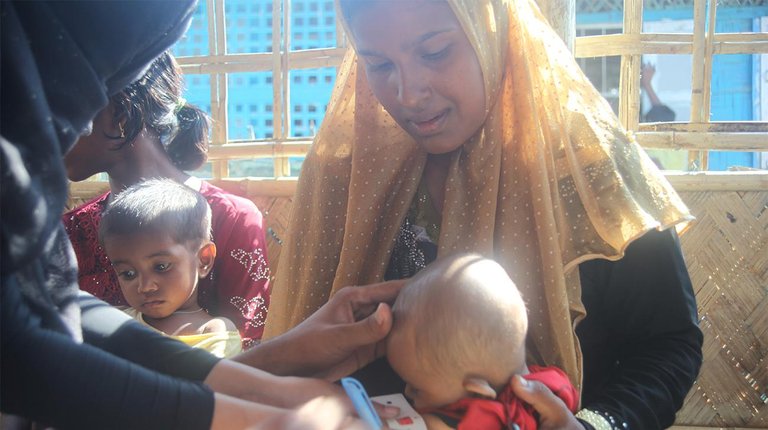“I am worried about him,” said his mother, 25-year-old Roshida Begum, in the waiting room of a malnutrition screening centre.
“He got a fever last night but I couldn’t reach help. I was told to come here.”
Along with an estimated 625,000 Rohingyas who have fled Myanmar for camps in Bangladesh since late August, Begum is struggling to feed herself and her baby.
The exodus began when coordinated Rohingya insurgent attacks sparked a ferocious military response, with the fleeing people accusing security forces of arson, killings and rape.
The top UN human rights official said on Tuesday that Myanmar’s security forces may be guilty of genocide against the Rohingya.
Myanmar has rejected accusations of ethnic cleansing and has labeled Rohingya militants as terrorists.
While now safe from the threat of violence, refugees in Bangladesh now face malnutrition on an “alarming” scale, say aid agencies.
Health workers suspect tiny Mahmoud, who wears an oversized red sports shirt, has severe acute malnutrition - the most serious form of malnourishment. All he has had to eat in the camp, where his family has been for two months, is a few spoonfuls a day of rice mixed with sugar, his mother says.